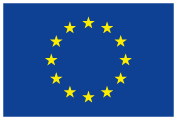TRADERS in ‘Mediating Uncertainties: Information and the Urban’ (LSE Cities Workshop)
The Cities lab of the London School of Economics hosted a workshop on Mediating Uncertainties on September 11th, which was attended by Saba Golchehr, TRADERS researcher at the RCA. One of the objectives of the workshop was to ‘examine how advances in technologies of gathering data, communicating, and networking have influenced and shaped the sphere of urban governance and urban political life in cities and with what effects’. And the aim of the discussion was to ‘explore how information relates with uncertainty in the urban sphere’. The workshop was organized and led by Sobia Ahmad Kaker, an interdisciplinary scholar working on issues related to governance and security in the global south. A list of all speakers can be found on the events website.
The topics at the workshop varied from smart cities, and the increasing popularity of ‘city dashboards’ showing real-time information on processes in the city, to the complex political structures and problems in Karachi, Pakistan, which has some negative externalities on, and is simultaneously amplified by, the capitals media channels.
All of the topics were highly relevant to the workshops theme, however within the framework of my research, which focuses on Big Data analytics, two speakers were of ancillary relevance to my work, and are therefore the two talks which I will elaborate on.
The first speaker was Adam Greenfield, a senior Urban Fellow at LSE Cities working on the implications of emergent technologies for the construction of public space and the right to the city. The “so-called smart city” is in his opinion an instrumented urban fabric that uses machinic intelligence to find peoples sentiments and predict their emotions. According to him it “raises a red flag” that this kind of data is gathered and mined, but is not available to the citizens (referring to IBM’s Intelligent Operation Centre in Rio de Janeiro as an example). He also spoke of technology and it’s misunderstandings of democracy, showing different examples of mobile phone applications built for voting on public matters (and shows Loomio as currently the best online platform for decision making). He suggests that voting is not simply a yes or no matter, that “dissensus has more to tell us than consensus” and that “democratic decision making is a process, not an event”. In conclusion, voting about public issues is more layered and complex than a simple yes or no answer (yes, because… or no, because… already provides us with much more relevant information to start building consensus), and technology should be influenced by this principle.
The second talk was by Rob Kitchin, a professor in the National Institute of Regional and Spatial Analysis at the National University of Ireland Maynooth. He is also the principal investigator on the Programmable City project and the Digital Repository of Ireland. His talk focused on the pros and cons of ‘city dashboards’. Some of his critique against ‘smart cities’ included: “(against) technocratic governance, hackable urban systems, the corporatisation of governance and panoptic surveillance”. Therefore city dashboards also have some pitfalls, as they are “reductionist and they undermine and replace other forms of urban knowing”. However they also have some advantages, according to Kitchin the dashboards can promote a realist epistemology for knowing cities. Conclusively he drew us a picture of two opposing methods, on the one hand there is the status quo of urban decision making which relies on the “politics of anecdote”, and on the other hand we now have a way of following a more evidence-based urbanism with the use of city dashboards.
Personally I think that the answer lies somewhere in the middle. Somewhere where other, more traditional, ways of urban knowing, built on years of experience, meet the realist epistemology of data dashboards, so that urban decision making can be both empirically based and democratic.



